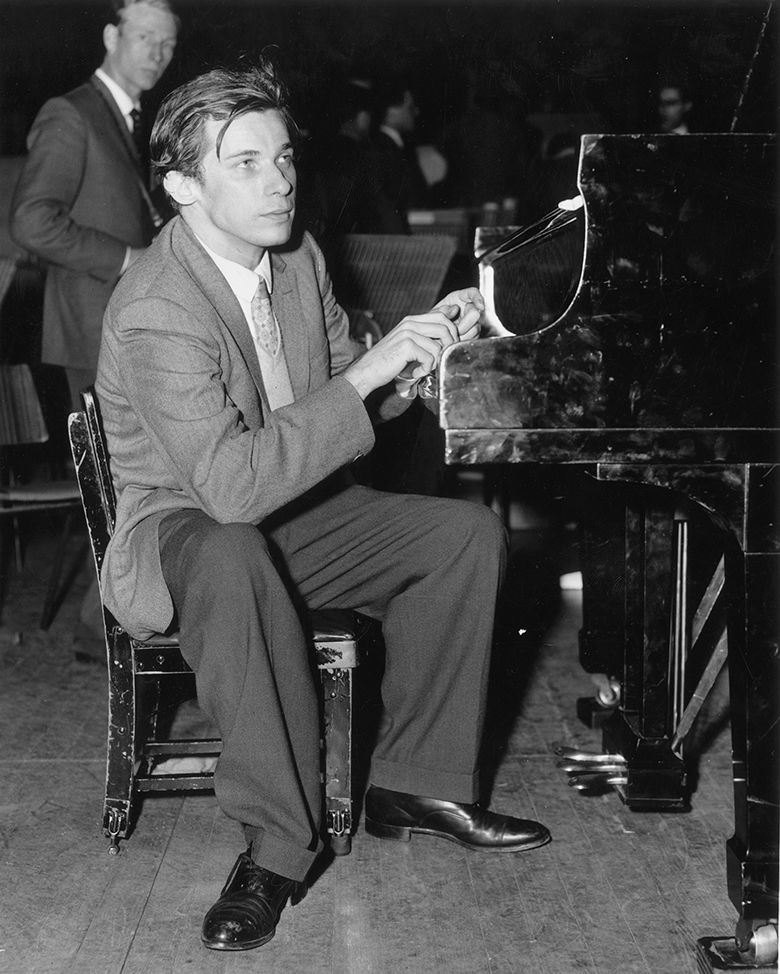Glenn Gould (1932-1982) was a Canadian pianist, best-known as an interpreter of Bach.
In the documentary “Hereafter,” he makes an interesting and useful observation about freedom.
He says, “I have often thought I’d like to try my hand at being a prisoner. ... I have never understood the preoccupation with freedom as it is understood in the Western world. So far as I can see, freedom of movement usually has to do with mobility, and freedom of speech most frequently with socially-sanctioned verbal aggression. To be incarcerated would be a perfect test of inner mobility.”
Gould wasn’t promoting our grossly punitive prison industry. He was making an observation about the license to do as we please — no matter who is affected or hurt — that passes for freedom in our culture. He was talking about the freedom known to the follower of Christ: to respond — or not — to the invitation to leave everything behind and follow him.
“I haven’t understood a bar of music in my life, but I have felt it,” observed composer Igor Stravinsky. “We only believe in those thoughts which have been conceived not in the brain but in the whole body,” noted the poet W.B. Yeats.
Those are statements about the Incarnation.
They are statements about love.
Not the sappy, sentimental love Gould was referring to when he observed that the piano “is not an instrument for which I have any great love as such ... [but] I have played it all my life, and it is the best vehicle I have to express my ideas.”
The love, rather, that is willing to suffer.
Out of that kind of love, we will do things that, if we were forced to do them, would seem like a prison sentence. We will sit at our desks, or stand on our stages, or pace before our easels, or practice our sonatas for years on end trying to get the work right out of love.
We will suffer cold, hunger, loneliness, poverty, misunderstanding and failure for love.
Gould was not a member of any organized religion, but his monk-like devotion to the piano engendered deep reverence in his listeners. He made people believe in God; he linked them to the eternal. Watching him play, it’s impossible to imagine him with a woman: he was so clearly “wedded” to, consumed by, united with his music.
Famously eccentric, Gould wore gloves year-round and hated to be touched. He hummed and muttered and crooned while he played. He came to abhor concert halls, likening the experience to a blood sport like bullfighting and to prefer the control and solitude of the studio.
“I’ve had all my life a tremendously strong sense that indeed there is a hereafter,” he observed, “and that the transformation of the spirit is a phenomenon which one must reckon and in light of which one must attempt to live one’s life.”
He died in 1982, at the age of 50. In a clip filmed in 1981 — he was recording Bach’s “Goldberg Variations” for the second time (the first was in 1955) — he looks like an old man: partly because he insisted, his whole life, on sitting on the adjustable-height chair that his father had made for him as a child and so he is hunched over the keyboard (which no doubt contributed to the beauty of his playing); partly because he suffered for decades from a variety of health problems and neuroses; partly because to have the kind of genius he did is perhaps a burden too heavy to bear for the span of a “normal” life.
And yet you can’t help but feel you’re watching a man who had transcended the bounds of earth. You can’t watch his hands — their tenderness, their strength, the years of solitary practice that molded them — without thinking: Not a sparrow falls but that He knows. You can’t see his messy head bowed over the instrument to which he gave his life, and fail to believe that every hair of it is numbered.
In fact, so close is his face to the keyboard that he almost appears to be praying.
Gould was notoriously nocturnal. He slept by day and by night drank coffee, wrote, composed, read and, of course, played (he claimed to very seldom practice, preferring to learn the music instead by reading it).
The disciples fell asleep on their watch. But I like to think that in the Garden of Gethsemane Christ called, in his anguish, upon an artist: one who, like him, knew what it is to sweat tears of blood, to be consumed, to live in unceasing tension.
The angels would sing Christ out the next day, but as dawn broke, perhaps Gould, awake at his own watch, played Christ out: say, the “Aria Da Capo” from that immortal 1981 recording of the “Goldberg Variations” — a work so close to Gould’s heart that the first few bars are carved into his grave marker.
“When I listen to Glenn Gould, admiration is not what stimulates me,” one young devotee observes in “Hereafter,” “but rather what he has done, the kind of man he was, how he led his life, what it’s got to do with me.”

